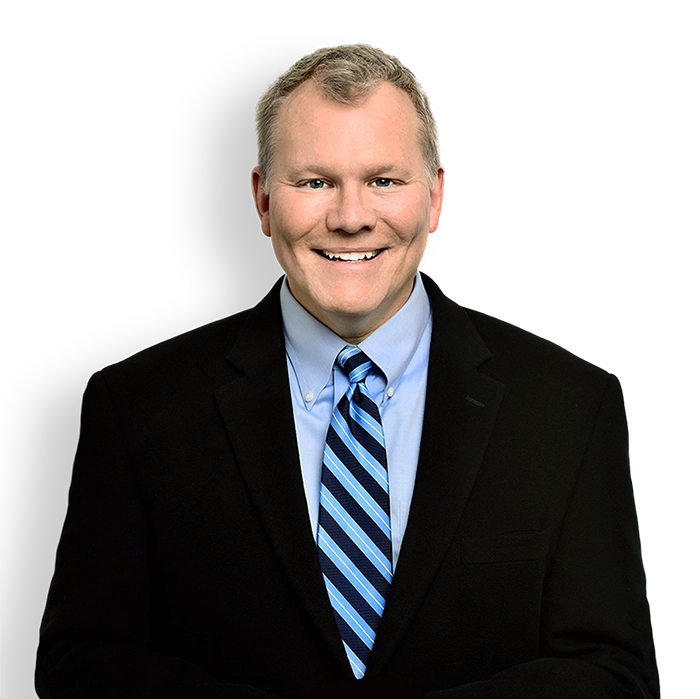New Nurse Practitioner Laws Change Scope of Practice, Reporting Obligations, and Financial Restrictions

With special contributions by Garrett Chan, PhD, RN, NP, FAAN, President & CEO, HealthImpact
California Governor Gavin Newsom signed Assembly Bill 890 (“AB 890”) into law on September 29, 2020, granting nurse practitioners (“NPs”) in the state a new level of independence. Maximizing the role of NPs as part of the healthcare team has long been a goal of public health leaders in the state, and the passage and enactment of AB 890 followed a years-long push by NPs and their allies for greater independent practice authority. Although the new law makes significant advancements to how NPs may practice in California, completely independent NP practice in the state will still not be a reality for at least several years. The new law also makes important changes to required reporting under Business and Professions Code section 805, and has implications for the referrals made by NPs and certified nurse-midwives (“CNMs”).
I. Restrictions on NP Practice Under Current Law
Under existing law, California has been one of the most restrictive states in the country with respect to NP independence. Although the practice of nursing is broadly defined in the state,[1] when a nurse’s practice has overlapped with the “practice of medicine”[2] they have been required to function pursuant to standardized procedures.[3] This has applied equally to registered nurses (“RNs”) and NPs, even though NPs have additional training and education beyond RNs.
AB 890 sought to recognize and capitalize on the greater knowledge base and skill set possessed by NPs by expanding their scope of practice beyond that of RNs. As originally introduced in 2019, AB 890 would have granted NPs full independent practice authority in specified settings immediately upon becoming law. The goal was to increase access to primary care providers, particularly in rural California. However, following significant opposition from physician groups, including the California Medical Association, AB 890 was amended to instead allow independent NP practice only following a three-year, or 4,600-hour, “transition to practice.” The law also makes several other changes to NP practice, as discussed below.
II. AB 890 and Expanded NP Independence
Once implementing regulations have been developed and codified by the Board of Registered Nursing (the “BRN”),[4] NPs who meet certain education, experience, and certification requirements will be permitted to practice independently without standardized procedures in specified settings. The requirements for this independent practice include having passed a national board certification examination and any additional examination determined by the Department of Consumer Affairs Office of Professional Examination Services; maintaining an NP certificate from a national certifying body; providing proof of educational training; and having completed a minimum “transition to practice” of three full-time equivalent years of practice, or 4,600 hours. NPs who meet these criteria will be permitted, without standardized procedures, to conduct advanced assessments; to order, perform, and interpret diagnostic procedures; to order radiologic or laboratory procedures and utilize those findings for treatment plans; to establish primary and differential diagnosis; prescribe, order, administer, dispense, procure, and furnish therapeutic measures, including controlled substances; to certify disabilities for purposes of unemployment insurance; and to delegate tasks to medical assistants. An entity for which an NP works pursuant to this new section of the law may not interfere with, control, or otherwise direct the professional judgment of an NP.[5]
In order to avoid confusion on the part of patients, NPs functioning in this expanded capacity must inform all new patients that they are NPs, and not physicians. In addition, NPs may not practice beyond the scope of their education, training, and experience, must publicly display the BRN’s contact information, and must maintain professional liability insurance.[6]
In addition, starting on January 1, 2023, NPs who hold active certificates issued by the BRN, who hold active RN licenses and a master’s degree in nursing (or other clinical-related field), and who have practiced as an NP in good standing for the past three years may practice in any setting, beyond those listed in new Business and Professions Code section 2837.103(a)(2)(A)-(F). However, these NPs still may not practice beyond the scope of their education, training, and experience; still must consult with other healing arts practitioners as necessary for patient care and in certain specified circumstances; still must inform all new patients that they are NPs, and not physicians; still must publicly display the BRN’s contact information; and still must possess professional liability insurance. In addition, these NPs must establish a plan for referring complex cases and emergencies to a physician.[7]
Effective January 1, 2021, NPs will be permitted, but not required, to serve on medical staff and hospital committees, and NPs who meet the additional criteria set forth in new Business and Professions Code section 2837.104(b) will be eligible for medical staff membership.[8] AB 890 also extends the reporting requirements under Business and Professions Code section 805 for actions taken against a “licentiate’s” privileges for medical disciplinary cause or reason to include actions taken against NPs. Under the revised section 805, any peer review body, as defined by section 805, that rejects or terminates an NP’s privileges or medical staff membership for medical disciplinary cause reason, or that imposes restrictions on privileges, membership, or employment for more than 30 days in a 12-month period, based on medical disciplinary cause or reason, must file an 805 report with the BRN within 15 days. Similarly, peer review bodies must report any resignations, leaves of absence, and withdrawals/abandonments of applications for privileges or medical staff membership by NPs under investigation for medical disciplinary cause or reason.[9]
Despite the change to the 805 reporting requirements, AB 890 did not extend hearing rights under Business and Professions Code sections 809 et seq. following actions taken by peer review bodies to include NPs. This echoes how physician assistants (“PAs”) are treated with respect to reporting and hearing rights, as PAs are included within the categories of “licentiates” for whom 805 reporting is required, but they do not have hearing rights under Business and Professions Code sections 809 et seq.[10]
III. Self-Referral Restrictions
In addition to the foregoing, AB 890 adds NPs and CNMs to the list of professionals subject to California’s self-referral law (commonly known as “PORA”) who cannot refer a person for laboratory, diagnostic nuclear medicine, radiation oncology, physical therapy, physical rehabilitation, psychometric testing, home infusion therapy, or diagnostic imaging goods and services if the licensee or an immediate family member has a “financial interest” in the entity receiving the referral, unless a statutory exception is available.[11]
IV. Looking Forward
While AB 890 represents the culmination of a years-long effort to grant independence to NPs in California, it nevertheless maintains the state’s position as one of the more restrictive when it comes to NP scope of practice, given the various limitations the law imposes on NPs before they may practice independently. Further, AB 890 requires the BRN to issue interpreting regulations that define the minimum standards for the 3-year “transition to practice” period, so even those NPs who already have completed a “transition to practice” will not be able to practice independently pursuant to the new law until, at a minimum, the BRN finalizes these regulations. There is no deadline for the BRN to do so in AB 890, meaning that it could be some time before these regulations are put in place, and before the full impact of AB 890’s changes is felt.
However, AB 890’s changes to reporting obligations and to the self-referral prohibitions become effective on January 1, 2021, so any health system utilizing NPs must take steps to educate itself on the new law to ensure compliance.
***
For further information, please contact Katherine Dru or Charles Oppenheim in Los Angeles, Emily Brinkman or Andrea Frey in San Francisco, or your regular Hooper, Lundy & Bookman contact.
[1] The “practice of nursing” is defined under California law as “those functions, including basic health care, that help people cope with difficulties in daily living that are associated with their actual or potential health or illness problems or the treatment thereof, and that require a substantial amount of scientific knowledge or technical skill.” Bus. & Prof. Code sec. 2725(b).
[2] The “practice of medicine” is defined in the law as “diagnos[ing], treat[ing], operat[ing] for, or prescrib[ing] for any ailment, blemish, deformity, disease, disfigurement, disorder, injury, or other physical or mental condition of any person.” Bus. & Prof. Code sec. 2052(a).
[3] See Bus. & Prof. Code sec. 2725(a); Title 16 CCR sec. 1463(e).
[4] See new Bus. & Prof. Code sec. 2837.101(c). Importantly, NPs will not be able to function independently until after the BRN has promulgated these implementing regulations. In addition, the BRN is required to establish a “Nurse Practitioner Advisory Committee” to develop standards for NP practice, including education requirements and appropriate standard of care, as well as to provide recommendations or guidance to the BRN regarding disciplinary actions against NPs. See new Bus. & Prof. Code sec. 2837.102(a)-(b).
[5] For more information on these requirements, see new Bus. & Prof. Code sec. 2837.103.
[6] These requirements also are set forth in new Bus. & Prof. Code sec. 2837.103.
[7] For more information on these requirements, see new Bus. & Prof. Code sec. 2837.104.
[8] See new Bus. & Prof. Code sec. 2837.103(a)(3)(B), 2837.104(a)(2).
[9] See Bus. & Prof. Code sec. 805(a)(2) (as amended by AB 890), 805(b)(1)-(3), 805(c)(1)-(3) (as amended by AB 890).
[10] See. Bus. & Prof Code sec. 805(a)(2), 809(b).
[11] See Bus. & Prof. Code sec. 650.01(b)(4)(B)-(C) (as amended by AB 890).


